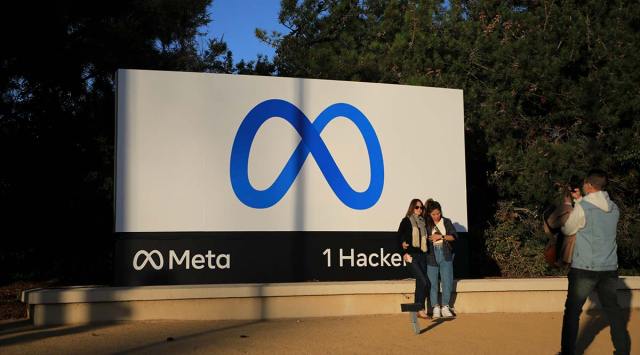Meta rolls out new paid verification service amid slowing advertising growth
Meta Verified is a part of Meta's new business strategy to increase sources of revenue as its advertising growth slows.
 For USD 11.99 a month on web and USD 14.99 a month on iOS, Facebook and Instagram users will be able to subscribe to Meta's paid verification service. (Image credit: Reuters)
For USD 11.99 a month on web and USD 14.99 a month on iOS, Facebook and Instagram users will be able to subscribe to Meta's paid verification service. (Image credit: Reuters) Meta, the parent company of Facebook and Instagram, announced on Sunday it will be testing out a paid verification subscription service that makes it easy for users to verify their accounts. The move behind the subscription service is to increase “authenticity and security across its services”, Meta CEO Mark Zuckerberg said in a Facebook post.
Dubbed Meta Verified, the service will be priced at $11.99 a month for the web and $14.99 a month on iOS. The service will allow users to submit their government ID to get a verified blue badge as well as direct customer access to customer support. Meta will roll out its paid verification subscription service this week, starting with Australia and New Zealand. Meta said it will gradually expand the service and made it available in more countries soon.
Meta’s new verification subscription service comes at a time when its rival – Twitter, too, is pushing for a paid subscription service to increase revenues. Last year, the Elon Musk-owned social media giant announced Twitter Blue, a revamped service that grants users verification they agree to pay a monthly fee. As of February, Twitter Blue has close to 290,000 subscribers, according to The Information. Snapchat, another social media company, also offers Snapchat+ for which it charges $3.99 a month. The service has over 2 million users.
Meta Verified is a part of Meta’s new business strategy to increase sources of revenue as its advertising growth slows. Meta has seen dizzying success with its core social media apps such as Facebook and Instagram but lately, the revenue from digital advertising is drying up. The company has been experimenting with TikTok-like features to broaden the appeal of Facebook and increase engagement.
Under Zuckerberg, Meta has spent billions of dollars on Metaverse, an immersive virtual reality world where people can meet and chat in virtual reality. The company is yet to make money out of Metaverse. In fact, Meta (formerly Facebook) is under pressure from investors to diversify its revenue model, in part to reduce its reliance on digital advertising as inflation and looming recession have hit hard ts core business.







